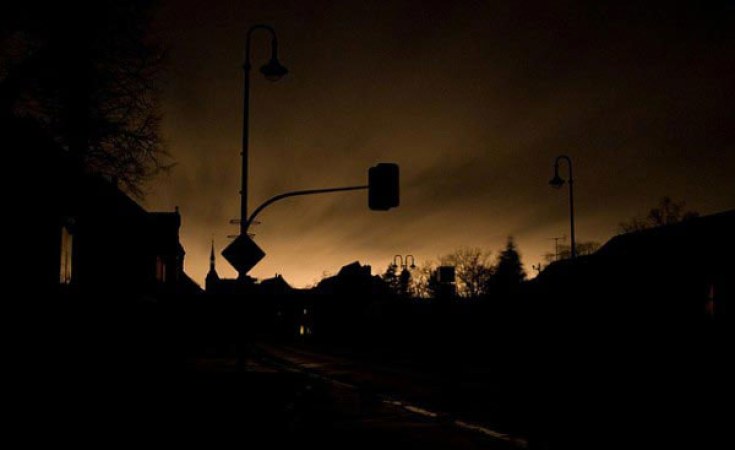Inside a small bakery in Maputo, the morning's batch of 150 loaves of bread has just gone into the oven. But there's a problem: the electricity has gone out without warning for the third time that week. Yet again, the batch of bread is ruined. The owners of the bakery have just lost all the flour and yeast they used to prepare the bread, and they won't be able to sell the failed loaves either.
This is just one example of the daily reality for medium and small business owners in Mozambique. We set out to research what happens to small businesses when they have no regular, reliable electricity supply.
We found that 95% of Mozambique's small businesses rely on electricity, mostly from the national grid, to produce the goods they sell. They use electricity productively to generate sustainable livelihoods and create jobs. Yet 86% of the small enterprises we interviewed said they had an unreliable supply of electricity.
This is important because the small business sector is one of the most critical sectors of the economy. Small businesses are spread across the economy, including agriculture, which employs 80% of Mozambique's active workforce. They are often the only opportunity for self-employment and job creation. Because electricity supply is so unreliable, it threatens business owners' ability to earn a living, and destroys their ability to create jobs.
Where has Mozambique's electricity gone?
Mozambique has the 14th-largest natural gas reserves in the world. Over 74% of its electricity comes from hydropower, mainly generated at the Cahora Bassa hydroelectric dam. But the government agreed to export over 80% of this hydropower to South Africa under a 1969 agreement for South Africa to finance the dam's construction. Mozambique has recently said that when this agreement expires in 2030, it will keep this electricity for its own use.
Meanwhile, only 44% of the population have access to electricity. About 62% of the people in Mozambique live in rural areas where a very low 6% have access to electricity.
Those people who do have power have an unreliable electricity supply that is far too expensive. The bottom 40% of the most impoverished Mozambican households pay more than 15% of their average income for just enough electricity to power a few basic lights, a fan, a TV and to charge their phones.
What we found
We looked at household surveys on health, and information found in energy poverty indexes, which reveal how much people spend on energy and how much energy they can afford to use. We also spoke to 219 micro, small and medium enterprises to find out how they coped with electricity outages.
When the electricity system goes down without warning, enterprises such as bakeries, poultry farms and cement block factories can lose raw material. Chicken farms need electricity to hatch the eggs and grow the chicks. Cement block factories use machines to mix cement, sand and water and also to manufacture the blocks (manual work would be too slow). When the power cuts out during this time, the cement dries out. The frequent power cuts also damage equipment.
Read more: Mozambique needs a community-driven approach to electrification
Most of the small businesses had no backup power and had to stop production until the electricity came back on. Power cuts can last minutes, hours or even days. We found that only 10.05% of bakeries had diesel generators, and only 3.35% had wood-fired ovens to keep baking their bread. Notably, 68% of the surveyed enterprises said they spent up to 14.7% of their revenues to cover electricity expenses, while the remaining 32% dedicated even higher percentages, up to almost 39%.
This means that micro-enterprises bear a high burden when it comes to electricity expenses. At the same time, 82.4% of the small enterprises could not borrow money or get grant funding. Because 80% of the enterprises only sell their products in local markets, this further limits their growth potential and earnings.
We also found that the agriculture industry, which accounts for more than 26% of the country's gross domestic product and provides jobs for disadvantaged communities, has small businesses that are hit hard by power outages.
Because of its wealth of energy, Mozambique could meet its own energy needs and contribute to those of its surrounding countries, but it sells more than 90% of all energy produced in the country to neighbouring countries. It is also affected by extreme weather events and other aspects of climate change. Natural disasters in Mozambique lead to an annual loss of about $100 million, or 1% of the country's gross domestic product. Together, these factors mean that Mozambique's people are left experiencing energy poverty.
Solutions
There is an urgent need for long-term plans that go beyond immediate issues and create resilient infrastructures.
Our research recommends that the government implement specialised provincial energy policies that are tailored to regional needs. In areas with isolated populations, this would mean coming up with off-grid solutions such as solar and wind power. This should be coupled with targeted financing and subsidies for small businesses, including smallholder farmers, to install these systems.
Regional training programmes in entrepreneurial skills, especially for women in agriculture, are also recommended.
We also recommend joint efforts between public and private sectors of the economy to assist small enterprises to gain access to electricity so that they can generate sustainable livelihoods and support sustainable development in Mozambique overall.
Dr Miguel C. Brito co-authored the original research behind this article.
Roula Inglesi-Lotz, Professor of Economics, University of Pretoria
Mendita A. Ugembe, PhD in the Sustainable Energy Systems project in the Department of Geographic Engineering, Geophysics, and Energy, Science Faculty, Universidade de Lisboa


